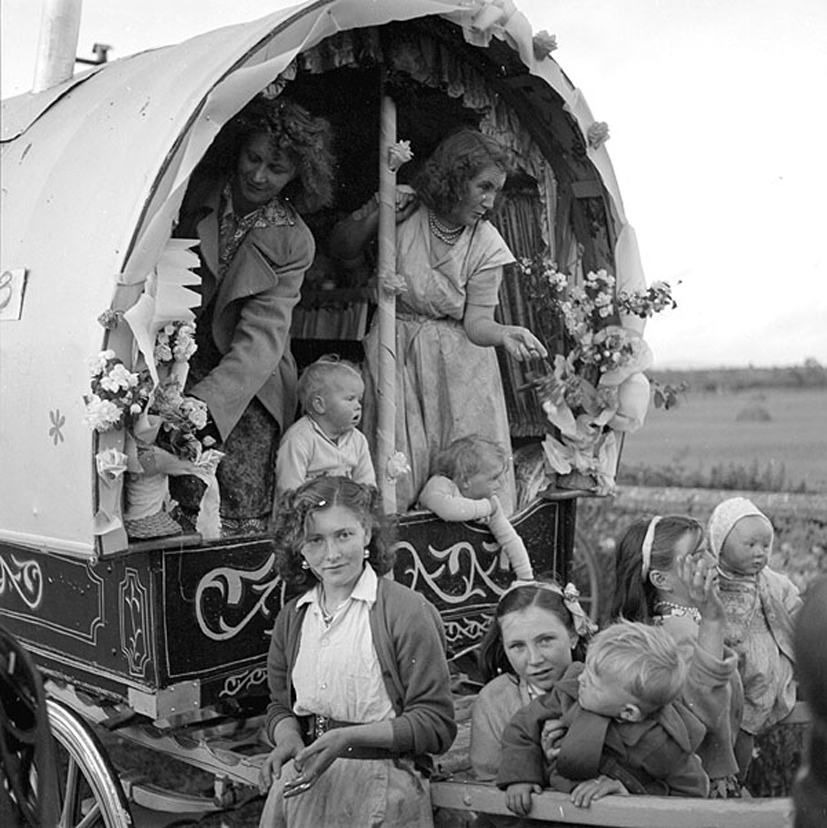

Challenges Faced by Ethnic Minority Groups or the Travelling Community Today.
by Daire Louise O'Dowd on the 23/08/2018
Ireland today is becoming an increasingly multicultural and diverse society, in the face of a more globalized world and it's fantastic to live in a more diverse society. Just the other day we saw the crowing of the recent Rose of Tralee go to the first Irish African contestant hailing from Waterford.
Yet still in spite of these positive changes what challenges are still faced by minority ethnic groups? One ethnic minority group that I feel is often overlooked is that of Irish travellers, who despite being in existence historically in society for years, still face discrimination today.
Under the Equal Status Act Section 2.1 the Traveller community is defined as “the community of people who are commonly called Travellers and who are identified as people with a shared history, culture and traditions including, historically, a nomadic way of life on the island of Ireland’’. However, formal and legal recognition historically took time to come into place causing many to criticize the Irish government’s stance on travellers and view it as prejudice.
The formal recognition of travellers only took place as late as 2017 by Taoiseach Enda Kenny in what was a pivotal moment. Prior to this, they had been overlooked by the state for decades through discrimination, exclusion and marginalisation in both policy and practice.
Former director of the Irish Traveller Movement - a designated Non-Governmental Organisation comprising a network of organisations and individuals working for travellers rights - Brigid Quilligan welcomed the move on behalf of the 40,000 strong travelling community at the time, in the hope that it would address concerns and help bridge the differences between the settled and travelling community. The perception of the travelling community among that of the settled community, she claimed, 'was often one of negativity and with the new recognition from the state of traveller identity this was a central issue that was hoped would improve’.
What led to this sudden change? A crucial DNA study, undertaken jointly by the Royal College of Surgeons Ireland paved the way for legislation providing conclusive evidence of Irish travellers as a minority ethnic group different, in national and cultural traditions to the settled community.
Genetic analysis from the study showed Irish travellers origin dating back to as far as the 16th century long before the Great Famine of the 18th century which was long believed to have caused the migration of people across Ireland and the origin of the travelling community. The DNA analysis coincided around the period of the Ulster plantations when native Irish were displaced from their land to form a nomadic population and around Cromwellian times. Although no conclusive evidence proved this is a distinct reason for their origin. The analysis however distinctly proved they were unique to that of settled Irish which formed the basis for the recognition of distinct ethnic status.
NGO’s such as the Irish Traveller movement have been highlighting this issue for a long time. A review of the Commission on Itinerancy report (2013) by the Irish Traveller Movement, has highlighted how an original Commission on Itinerancy report issued in 1963 still impacts structures and systems for travellers. The importance of the original document as the first state policy document not only for future strategies but also the outlook the Government had towards travellers, their culture, values and identity.
Were any representatives of the travelling community involved in the original committee? No! The committee was comprised of representatives of state agencies or landowner /lobby groups with vested interests. Are we really surprised?
More recently reports have found that there are still high levels of discrimination experienced by Travellers particularly in the area of private services such as shops, pubs, restaurants, banks and housing, with Irish travellers 22 times more likely than White Irish to experience discrimination in 2014. This difference was relevant to all private services, but particularly to shops, pubs and restaurants.
In my own area of education, travellers are more likely to leave school at an earlier age and only a very small number go on to third level education.
It has been found in a recent ESRI Report in 2017 that in contrasting comparison of levels of education between the 25-34 age group 91% of travellers had left school to that of 14% of non-travellers little change to previous years, suggesting there has been little improvement in access to education for travellers despite improvements in the Education system since the 1960’s!!
Interesting food for thought!
Find out more about the challenges facing the Travelling community in Ireland by visiting: www.paveepoint.ie

0 comments
No comments on this blog yet. Would you like to be the first?